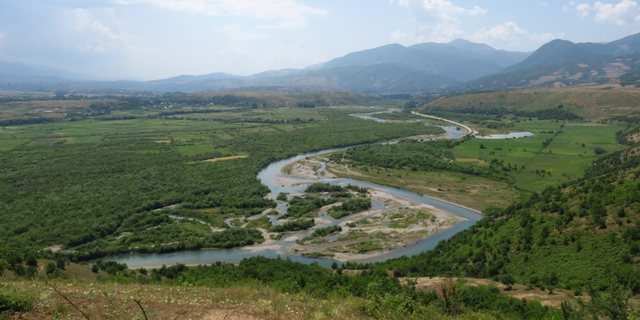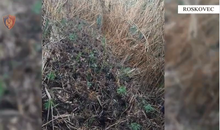
 Flash News
Flash News
The Berne Convention will monitor the Skavica project for possible violations

The Berne Convention*, at its April meeting, has decided to monitor the Skavicë HPP and to ask the Albanian government to respond to the following common concerns:
– The Skavicë HPP on the Black Drini River could affect a potential area of the Emerald Network and also numerous species protected in the Berne Convention, which Albania has ratified into law.
– Of particular concern is the critically endangered Balkan Lynx and its migratory corridors. The Berne Convention has pointed out that the Skavica HPP project conflicts with the Lynx Recovery Project, in which Albania was the main proponent for listing the Balkan lynx as a strictly protected species.
- The Berne Convention Bureau also emphasized that the project could affect three important lakes of the Western Balkans, including the lakes of Ohrid and Shkodra.
- An issue that requires close monitoring is the compilation of the Environmental and Social Impact Assessment for the Skavica HPP, which is still not finalized.
- Finally, the Bureau noted the protection of large carnivorous animals, which are also affected by the Skavica HPP.
The Berne Convention has required Albania to apply the principle of prevention during the current first phase of the project. This means not developing projects that could negatively affect the habitats and species of Albania and the territory of the Bern Convention.
"We must move away from the false notion that hydropower is 'renewable' energy as it permanently destroys freshwater ecosystems and causes significant environmental damage to all life, including humans," said Grant Wilson, Executive Director, Land Legal Center.
"We are pleased that the Bureau has taken our complaint seriously and we particularly applaud their support for the precautionary principle in their latest update."
"We also want to emphasize that we cannot sacrifice nature and ecosystems for false solutions, such as the dam in Skavica, in the name of saving the same nature from the climate crisis, caused mainly by the destruction of ecosystems itself - that the dam will brought We need to look for solutions that serve and preserve all life and not create sacrifice zones", says Zoe Lujic, Executive Director of Earth Thrive.
"There has been a growing opposition to the Skavica Dam, a movement to protect the Drin river, the flora, the fauna, because our life and livelihood depends on the existence of the Black Drin river. The protests for the protection of Black Drin and Dibra will continue, as we continue our legal fight to protect the rights of the Dibra community in the same way we fight to protect the rights of Black Drin. Science has proven that hydropower destroys physical river changes, resulting in fragmented habitats, reduced biodiversity, endangered fish populations, preserves sediments and nutrients that are essential for downstream ecosystem health, and exacerbates climate change. We call on legislators and the scientific community to find alternative sources, including solar energy and wind energy," says Ferzileta Gjika, founder of the movement Opposing Skavica Dam.
The reaction of the Convention comes after an official complaint directed in January by a coalition of NGOs, consisting of Earth Law Center - USA, Earth Thrive - UK, Skavica Dam Opposition - OSD (Albania), Group of Rural Activists of Dibra - GARD (Albania), North Green Association (Albania), and GLV Integrimi (Albania), regarding the Skavica Hydropower Project (HEC).
After an in-depth visit to the affected project area and consultation with project stakeholders, it was observed that the Skavica HPP destroys protected habitats and, more specifically, violates articles 2, 3.1, 3.2., 4.1 and 10.1 of Berne Convention. The complaint provided ample evidence that the authorities, in connection with this project, have failed to take the necessary administrative actions to protect the species and habitats (listed in Appendices I and II and Resolutions No. 4 [1996] & No. 6 [1998]), and for the fact that the Black Drin river should be declared an Emerald country according to the 2011 Biogeographical Seminar./ Monitor
Latest news


'Bankers' tax evasion, Chinese CEO and former director jailed
2025-07-05 17:39:21
Kyle Walker joins English club on two-year deal
2025-07-05 17:20:24
Two cars collide on the Saranda-Delvina axis, 4 injured
2025-07-05 17:05:29
Touching gesture! Liverpool will pay Jota's family's salary until 2027
2025-07-05 16:45:18
The zodiac signs that cheat most often
2025-07-05 16:25:53

"I asked for the dismissals", Dredha tries to soften Rama's 'blow' in Vlora
2025-07-05 15:48:49
Bomb threat in Parliament, prosecutor: It was a lie
2025-07-05 15:22:28

Bardhi: The recount revealed how greedy Zeqine Balluku is in stealing
2025-07-05 14:44:29
Knife wound on the secondary road Tirana-Durrës, perpetrator sought
2025-07-05 14:37:54
Tears and pain, Diogo Jota is escorted to his final home
2025-07-05 14:21:34
Success starts with yourself! Simple ways to invest in personal development
2025-07-05 13:58:50
Unlicensed firearms found in apartment, 50-year-old arrested in Lushnje
2025-07-05 13:43:11

Tirana Court remands Skerdi Sina to prison
2025-07-05 12:59:34
Cocaine laboratory in Greece, here are the Albanians arrested and wanted
2025-07-05 12:40:16
Directed Justice/Vangjeli: SPAK does not investigate any scandal involving Rama
2025-07-05 12:22:03

Bomb alert, Police remove MPs and media from Kosovo Parliament building
2025-07-05 11:48:16
"The will of the people" and the irony of ordered resignations
2025-07-05 11:32:05
Summer drowning risk: How to enjoy the water without risking your life
2025-07-05 11:20:27
Fire situation in the country, 16 fires reported in 24 hours, 4 still active
2025-07-05 11:07:04
Car hits pedestrian at white lines, injured in serious condition in Vlora
2025-07-05 10:59:58
Mosquito-borne diseases are a growing problem in Europe
2025-07-05 10:44:13



One of Sweden's most dangerous and wanted criminals arrested in Turkey
2025-07-05 09:38:29
Foreign exchange/ How much foreign currencies are bought and sold today
2025-07-05 09:18:38

"Don't be influenced by the opinions of others", today's horoscope
2025-07-05 08:40:50

Morning Post/ In 2 lines: What mattered yesterday in Albania
2025-07-05 08:02:07

Trump says he's ready to raise tariffs to 70% on some countries
2025-07-04 22:35:52
Tre shenjat e zodiakut që do ‘pasurohen’ në Korrik
2025-07-04 22:05:09
Gaza War: Hamas Accepts US Proposal for 60-Day Ceasefire
2025-07-04 21:50:10
Autocracy in Albania, Fuga: Governance has gotten out of control
2025-07-04 21:40:51
Meta: Agriculture on credit, the new fraud!
2025-07-04 21:26:39




Vote recount in Durrës ends without changes
2025-07-04 20:12:54
Gas station explodes in Rome, 25 injured (VIDEO)
2025-07-04 20:00:20

These afternoon habits often sabotage weight loss
2025-07-04 19:39:28
Former Arsenal player Thomas Partey accused of rape
2025-07-04 19:24:21
Shepherd disappears without a trace in Delvina
2025-07-04 19:14:31

Bardho gave Zegjine's mandate/Braho: Unfair! It violates the electoral system
2025-07-04 19:01:08


Rapid developments in the Sultanates!
2025-07-04 18:00:06



Italy tightens rules for skateboard traffic
2025-07-04 17:20:18

Unusual for the time, dense fog covers the coast of Vlora
2025-07-04 16:48:01


Accident on the Shkodra-Lezhë axis, one dead and 3 injured
2025-07-04 16:14:19
Albania with fewer requests for asylum and Albanian citizenship in 2024
2025-07-04 16:06:57

Albania last for quality of life, DP: Technical government is the solution!
2025-07-04 15:42:30
Nico Williams says "No" to Barcelona, signs with Athletic Club until 2035
2025-07-04 15:33:35
Fires in the country, four fires are still active, what is the situation?
2025-07-04 15:24:20

Summer brings big changes for these 4 zodiac signs
2025-07-04 15:00:04
Osmani: MPs need to agree to a secret ballot for the Speaker of Parliament
2025-07-04 14:51:09
Serious accident on the Peqin-Elbasan axis, two injured
2025-07-04 14:37:56

GJKKO leaves in force the security measure for the head of the KPP
2025-07-04 13:58:17
Who will replace Ilir Meta and take over the leadership of the PL?
2025-07-04 13:50:36
Berisha: Dismissal of directors in Vlora, another act of 'scapegoats'
2025-07-04 13:41:46




Librazhd/ In a serious psychological state, the young man consumes pesticides
2025-07-04 13:05:07


Weapons trafficked from Kosovo to Albania, two arrested, 8 pistols seized
2025-07-04 12:33:28
Konsumimi i tepërt i çokollatës, ja cilat janë dëmet që shkakton në organizëm
2025-07-04 12:23:35

Fires in the country, 21 fires in the last 24 hours, 4 still active
2025-07-04 12:00:19
WB calls for debt transparency: Albania to publish details of every loan
2025-07-04 11:50:05
Changes in the State Police, new names expected to lead 5 police stations
2025-07-04 11:40:06

The race for the head of the BKH, the third phase on July 11
2025-07-04 11:20:23

Toxic phrases that show your relationship is in trouble
2025-07-04 11:00:10

2 brothers arrested in Roskovec, cultivating narcotic plants
2025-07-04 10:38:08

Celebrating his 61st birthday today, Rama is surprised at the pink headquarters
2025-07-04 10:21:46
